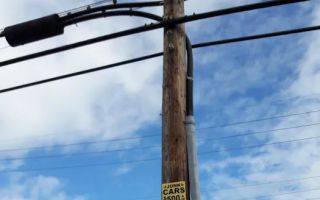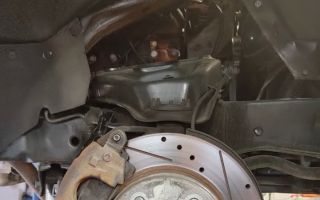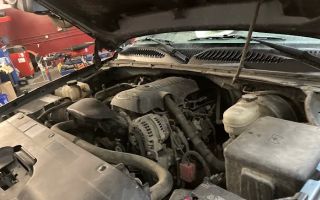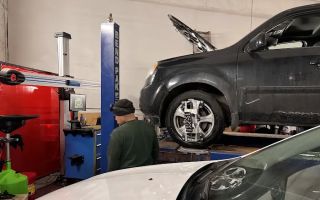Understanding the Role of a Car Alternator
As a car owner, one of the most essential components of your vehicle is the alternator. This small but powerful device is responsible for keeping your car's battery charged and ensuring that the electrical systems in your vehicle run smoothly. Without a functional alternator, your car could struggle to start, or worse, could completely stop running. In this article, we'll take you through the process of identifying and fixing a faulty car alternator, so you can keep your vehicle in top shape.
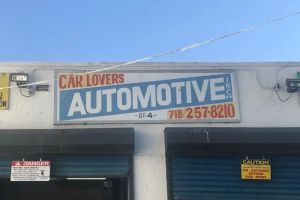
Car Lovers Automotive, Inc.
884 New Lots Ave, Brooklyn, NY 11208, USA
Signs That Your Alternator Might Be Failing
Recognizing a failing alternator early can prevent significant damage to your vehicle and save you from costly repairs. Here are some common symptoms of a faulty alternator:
- Dashboard Warning Lights: One of the first indicators of a problem with your alternator is the appearance of the battery warning light on your dashboard. This light could also resemble a light bulb or a lightning bolt, depending on your car's make and model.
- Flickering or Dimming Lights: If you notice that your headlights or dashboard lights flicker or dim, it could be due to a malfunctioning alternator. Since the alternator supplies power to the car's electrical systems, a weak alternator can cause intermittent power loss.
- Dead Battery: A dead battery may seem like a simple issue, but if your battery repeatedly dies or is unable to hold a charge, the alternator could be to blame. A failing alternator may not be charging the battery properly, leaving it drained.
- Strange Noises: If your alternator is failing, you might hear unusual noises such as whining or grinding. These noises could indicate internal damage or worn-out components within the alternator itself.
- Car Stalling: When an alternator fails completely, the vehicle can lose power while driving. This could result in the car stalling, particularly if the alternator is not providing enough power to maintain engine functions.
How to Test if Your Alternator is Faulty
Before jumping to any conclusions, it's essential to test your alternator to confirm whether it's faulty. Here are a few methods to check if your alternator is the source of the problem:
- Battery Voltage Test: The simplest test involves checking your car battery’s voltage. Start by turning off your car and using a multimeter to measure the voltage at the battery terminals. A healthy battery should show a voltage between 12.6 and 12.8 volts. Start the car and check the voltage again. If the voltage rises to around 13.8 to 14.4 volts, the alternator is working fine. If it doesn’t increase, the alternator might not be charging the battery.
- Headlight Test: Turn on your car's headlights and observe their brightness. If they brighten as you rev the engine, the alternator is working. If they stay dim, you may have a malfunctioning alternator.
- Voltage Drop Test: Another way to check the alternator’s performance is by performing a voltage drop test. If there is a large drop in voltage when the alternator is under load, it could signal an issue with the alternator’s output or connection.
What Causes Alternator Failure?
Understanding what causes an alternator to fail is key to preventing future issues. The most common causes include:
- Worn-out Brushes: The brushes in the alternator are responsible for maintaining contact with the rotor. Over time, these brushes can wear out, leading to poor performance or complete failure of the alternator.
- Damaged Diodes: The diodes in the alternator are responsible for converting the alternator’s AC current into the DC current that powers your vehicle. If a diode is damaged, the alternator may not function properly, leading to electrical system failure.
- Loose or Worn-out Belts: The alternator relies on a belt connected to the engine to spin the rotor. If the belt is too loose or worn out, it can cause the alternator to malfunction, which results in poor charging or no charging at all.
- Corroded Wiring: Over time, the wiring that connects the alternator to the battery can corrode. Corroded wiring can reduce the alternator's efficiency or prevent it from working altogether.
How to Fix a Faulty Alternator
If you've determined that your alternator is faulty, there are a few steps you can take to fix the issue. While some repairs can be done by experienced DIYers, others may require professional assistance. Here's what you need to know:
- Replace Worn Brushes: If the brushes in your alternator are worn out, replacing them is a relatively simple repair. You can either replace the brushes yourself or have a mechanic do it for you.
- Replace a Faulty Diode: Replacing a damaged diode may require the expertise of a professional. It's best to take your alternator to a shop for diagnosis if you suspect a diode issue.
- Install a New Alternator Belt: If the alternator belt is loose or worn, replacing it should resolve the problem. This is a common DIY fix that many car owners can do themselves.
- Repair or Replace Wiring: If the wiring to the alternator is corroded or damaged, repairing or replacing the wiring should restore the alternator's functionality. Again, this is a repair best suited for professionals.
When to Seek Professional Help
While many car owners are capable of diagnosing and repairing minor alternator issues, more complex problems may require professional assistance. If you're unsure about your ability to replace an alternator or if you suspect significant damage to internal components, it's best to seek the help of an experienced mechanic. A professional can ensure the repair is done correctly and safely, preventing further damage to your vehicle's electrical system.
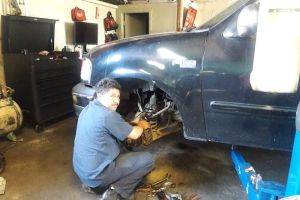
Cano Automotive
980 N State St f2, Hemet, CA 92543, USA
Conclusion: Keeping Your Car Running Smoothly
In conclusion, knowing how to identify and fix a faulty alternator is an essential skill for any car owner. Early detection of symptoms such as dimming lights, dashboard warning lights, or frequent battery failures can save you time, money, and stress. Regular testing and maintenance of your alternator can keep your car’s electrical system running smoothly and avoid being stranded on the side of the road. If you're not comfortable performing repairs yourself, don't hesitate to seek professional help to ensure that your alternator and your car stay in optimal condition.


